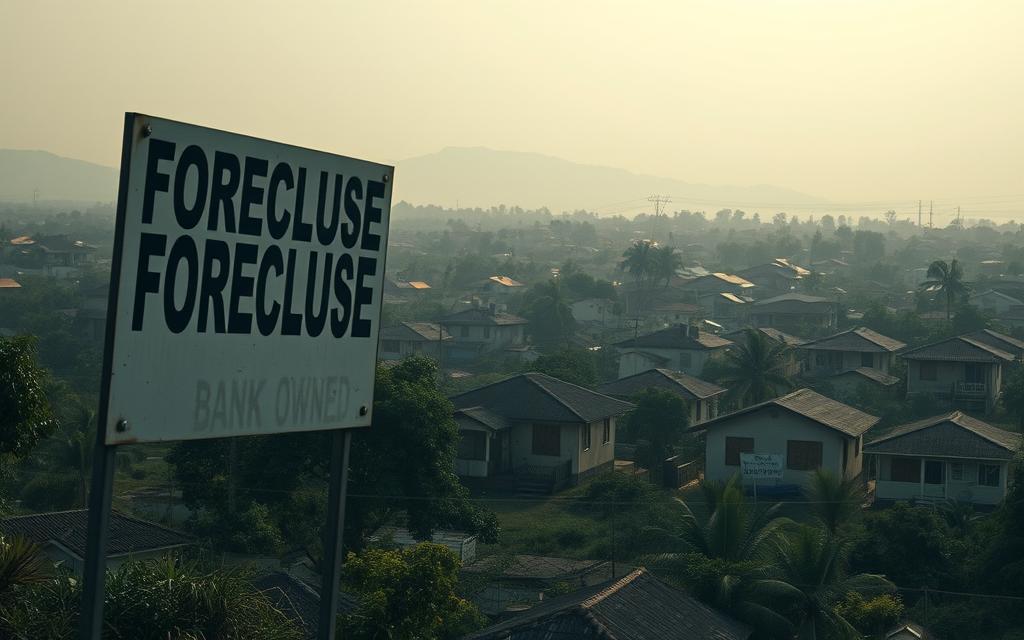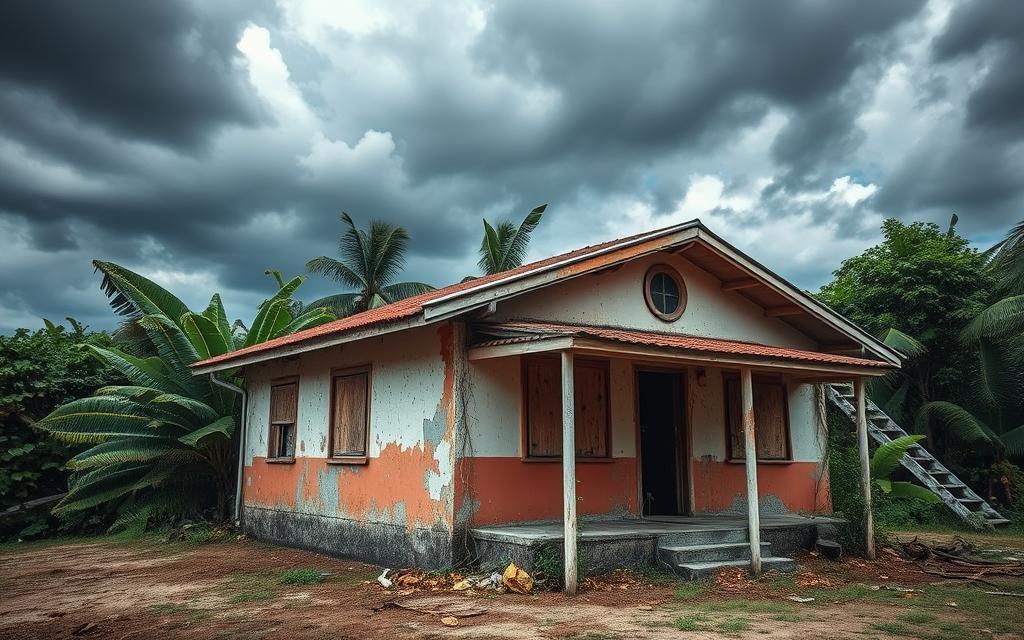Discover how to navigate understanding the approval process for GAP loans in Costa Rica. Our expert guidance ensures a smooth experience for securing investment property financing.

How to Avoid Foreclosure in Costa Rica
Navigating the complexities of foreclosure in Costa Rica can be daunting for both local and foreign property owners. As the real estate market continues to evolve, understanding the legal and financial implications of foreclosure becomes increasingly vital.
Did you know that the foreclosure process in Costa Rica typically takes 1-2 years? This timeframe provides homeowners with a window of opportunity to implement effective solutions and avoid losing their property. We connect borrowers with private investors and lenders, providing competitive rates and flexible financing options, such as Costa Rica Home Equity Loans, to help homeowners retain their properties.
By understanding the unique aspects of Costa Rica’s foreclosure process and exploring strategies like loan modifications and equity loans, property owners can take proactive steps to avoid foreclosure and protect their investments.
Understanding Foreclosure in Costa Rica
The concept of foreclosure in Costa Rica differs significantly from other countries, making it essential to grasp its nuances. In Costa Rica, foreclosure is a legal process initiated when a borrower defaults on their mortgage payments. The Spanish term for mortgage, “hipoteca,” is relevant as it underscores the legal and financial implications of defaulting on a mortgage.

What Constitutes Foreclosure in Costa Rica
Foreclosure in Costa Rica is fundamentally a judicial process. When a borrower fails to meet their mortgage obligations, the lender initiates legal proceedings. This involves filing a lawsuit in civil court, which can lead to a public auction of the property if the debt is not settled. Understanding what constitutes foreclosure is the first step in developing strategies to avoid it. For more detailed information on the foreclosure process, you can visit this resource.
The Legal Process of Foreclosure
The legal process of foreclosure in Costa Rica is complex and involves several steps, including property certification, court review, and public notification. The court determines the priority for debt recovery and sets a minimum auction price. This process can take between 1 to 2 years, providing homeowners with a window to address their financial issues. Costa Rican law also provides certain protections, such as a redemption period, allowing property owners to reclaim their homes by paying the outstanding debt even after an auction.
Know Your Legal Rights as a Property Owner
Knowing your legal rights as a homeowner in Costa Rica can significantly impact your ability to avoid foreclosure. As we navigate the complexities of Costa Rican foreclosure laws, it’s essential to understand the protections available to property owners.
Costa Rican Foreclosure Laws
Costa Rica’s foreclosure laws are distinct in that they mandate court involvement, ensuring due process for homeowners. This judicial approach provides an opportunity for property owners to present their case and potentially delay or prevent foreclosure. For more detailed strategies on avoiding foreclosure, you can explore additional resources.
The legal framework in Costa Rica offers several protections for property owners facing foreclosure. Understanding these laws is crucial for homeowners to leverage the available protections effectively.
Redemption Periods and Borrower Protections
One of the significant protections available to homeowners in Costa Rica is the “redemption period.” This provision allows borrowers to reclaim their properties by paying off their debts even after the property has been auctioned. Additionally, property owners have the right to contest the foreclosure in court, request judicial appraisals to ensure fair property valuation, and negotiate payment plans or loan modifications.
- Homeowners can request a review of all documentation related to their mortgage to ensure everything is legally compliant and accurate.
- The judicial nature of Costa Rican foreclosures means that procedural errors by the lender can sometimes be grounds for delaying or even dismissing foreclosure proceedings.
Seeking guidance from legal professionals who specialize in Costa Rican real estate law is essential to fully understand and exercise your rights as a property owner.
Early Warning Signs of Potential Foreclosure
As homeowners in Costa Rica, recognizing the early signs of foreclosure can be the difference between keeping and losing your property. Being proactive and aware of the financial indicators and the timeline of the foreclosure process can provide a significant window of opportunity to address financial difficulties.
Financial Indicators to Watch For
Several financial indicators may signal that you are heading towards foreclosure. These include:
- Difficulty making monthly mortgage payments
- Increasing reliance on credit cards for essential expenses
- Depleting savings accounts
Monitoring your credit report and maintaining open communication with your lender can help identify potential issues before they escalate to foreclosure.
Timeline from Missed Payments to Foreclosure Actions
In Costa Rica, the foreclosure process can be lengthy, often taking several months to a few years. The process begins after several missed payments, and banks are required to provide formal notifications, including publications in the official Judicial Bulletin (“La Gaceta”), at least twice before any auction is scheduled.

Proactive Communication with Your Lender
By communicating proactively with your lender, you may uncover alternatives to foreclosure in Costa Rica. Establishing an open line of communication can be a game changer when dealing with financial difficulties. Many financial institutions in Costa Rica are willing to work with borrowers who proactively reach out to discuss their circumstances.
How to Approach Difficult Conversations
When approaching these conversations, honesty and transparency about your financial situation are essential. We should be prepared to clearly present our current financial situation and express our desire to find a workable solution. Lenders in Costa Rica often appreciate borrowers who take the initiative to communicate their financial challenges.
Approaching these conversations with a positive mindset can lead to mutually beneficial solutions. If we’re uncomfortable negotiating directly, considering bringing a financial advisor or attorney who specializes in Costa Rican mortgage law can help facilitate these critical conversations.
Documentation to Prepare Before Meeting
Before meeting with our lender, we should prepare comprehensive documentation, including income statements, expense records, asset information, and a detailed explanation of our financial hardship. Having a clear understanding of our financial situation and potential solutions shows lenders that we’re serious about resolving the issue.
Some of the key documents to gather include proof of income, bank statements, and a list of expenses. By being thoroughly prepared, we can demonstrate our commitment to finding a solution and increase the likelihood of a favorable outcome.
Loan Modification Options in Costa Rica
Loan modifications represent a crucial strategy for Costa Rican homeowners to manage their mortgage payments and avoid foreclosure. Homeowners may be able to sell the property to pay off the debt or explore alternatives like debt restructuring. Engaging with a legal professional experienced in Costa Rican property law can provide guidance and options.
Types of Modifications Available
Common types of loan modifications available in Costa Rica include interest rate reductions, term extensions, principal forbearance, and in some cases, principal reduction. These modifications can make mortgage payments more manageable for homeowners facing financial hardship.
- Interest rate reductions can lower monthly payments.
- Term extensions can spread out the loan over a longer period.
- Principal forbearance can temporarily reduce or eliminate principal payments.
How to Negotiate Better Terms
When negotiating with your lender, come prepared with a realistic proposal that demonstrates how the modified terms would enable you to maintain consistent payments while addressing your financial hardship. For more information on refinancing options in Costa Rica, you can visit GAP Equity Loans.
- Supporting documentation, such as income verification and hardship letters, strengthens your case.
- Understanding your lender’s specific modification programs gives you an advantage.
- Professional assistance from attorneys or financial advisors can improve your chances of securing beneficial loan modifications.
Using Home Equity Loans to Avoid Foreclosure
For Costa Rican property owners on the brink of foreclosure, home equity loans present a potential escape route. These financial tools allow homeowners to tap into the value they’ve built in their properties, providing a lifeline during times of financial distress.
GAP Equity Loans in Costa Rica
GAP Equity Loans offer a specific type of home equity loan tailored to Costa Rican property owners. By using their Costa Rican real estate as collateral, homeowners can borrow significant sums, ranging from $50,000 to $1,000,000, depending on the property’s value and their equity position.
These loans are particularly beneficial because they connect borrowers with private investors and lenders, offering more flexible qualification criteria than traditional banking institutions. This makes GAP Equity Loans accessible to those who might be declined by conventional lenders.
Requirements and Application Process
The application process for GAP Equity Loans is streamlined, with faster approval times and fewer documentation requirements compared to traditional mortgages. Interest rates start at 12% and vary based on the loan-to-value ratio (LTV) and other risk factors, with loan terms ranging from 6 months to 3 years.
To apply, property owners should be prepared to provide necessary documentation, including proof of property ownership and income verification. The flexibility of these loans allows homeowners to use the funds for various financial needs, from paying off existing mortgage arrears to covering other debts contributing to their financial distress.
How to Avoid Foreclosure in Costa Rica Through Legal Assistance
When facing foreclosure in Costa Rica, seeking professional legal advice can be a crucial step in protecting your property. An experienced attorney familiar with the local judicial system can help clarify your rights and obligations, ensuring that you understand every aspect of the process.
Finding the Right Legal Representation
To navigate the complex foreclosure process in Costa Rica, it’s vital to find an attorney with specific experience in Costa Rican foreclosure defense. Look for attorneys who have successfully helped clients in similar situations. A good foreclosure defense attorney can review your mortgage documents for potential violations, negotiate with lenders on your behalf, and represent you in court proceedings.
Some key factors to consider when selecting legal representation include their experience with local real estate law, their ability to identify options and protections that property owners might not be aware of, and their negotiation skills with lenders.
Cost-Benefit Analysis of Legal Intervention
The cost-benefit analysis of legal intervention should consider not just attorney fees but also the potential value of keeping your property, protecting your credit, and reducing overall financial losses. Legal representation costs in Costa Rica vary widely, but many attorneys offer initial consultations at reduced rates or even free of charge to assess your case.
Some attorneys may offer payment plans or contingency arrangements based on the specifics of your case and the likelihood of success. By understanding the costs and potential benefits, you can make an informed decision about seeking legal assistance to avoid foreclosure.
Alternative Solutions to Prevent Property Loss
When facing foreclosure in Costa Rica, exploring alternative solutions can be a viable path to preventing property loss. Homeowners can consider various options to avoid the financial and credit repercussions of foreclosure.
Short Sales and Deed in Lieu Options
Short sales allow homeowners to sell their property for less than the outstanding mortgage balance, with the lender’s approval. This can be a preferable option for both parties, as it results in fewer losses for the lender and less credit damage for the borrower. In Costa Rica, short sales require careful negotiation and lender approval. Another option is a deed in lieu of foreclosure, where homeowners voluntarily transfer property ownership to the lender in exchange for release from mortgage obligations.
Temporary Forbearance Agreements
Temporary forbearance agreements are another alternative solution, allowing homeowners experiencing short-term financial hardship to temporarily reduce or suspend mortgage payments. These agreements typically last 3-6 months and require demonstrating a realistic plan for resuming full payments. Homeowners can also explore guidance from local housing assistance programs and non-profit organizations in Costa Rica, which may offer mediation services and financial assistance to help avoid foreclosure.
Conclusion: Creating Your Foreclosure Prevention Plan
For Costa Rican homeowners facing financial difficulties, a well-structured plan can make all the difference in avoiding foreclosure. We recommend assessing your financial position, including income, expenses, and mortgage terms, to understand your situation.
Establishing early communication with your lender and considering legal and financial professionals can help explore options like loan modifications and equity loans. Developing short-term and long-term strategies is crucial for sustainable homeownership.
With Costa Rica’s foreclosure process taking 1-2 years, timely action and the right approach can help homeowners navigate financial challenges and protect their investments. By understanding your rights and options, you can create an effective foreclosure prevention plan.
Article by Glenn Tellier (Founder of CRIE and Grupo Gap)



